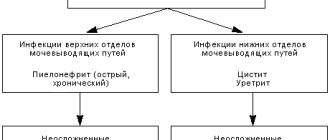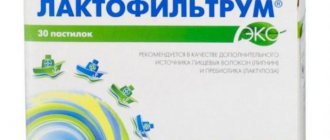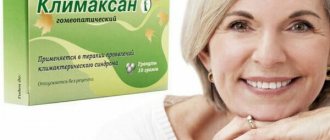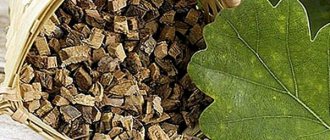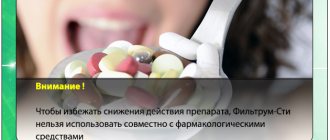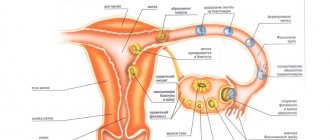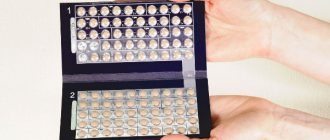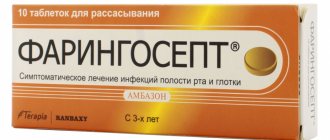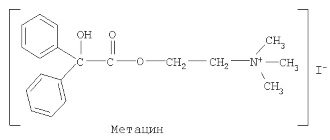Possible during pregnancy
Possible while breastfeeding
Can be taken by children
Polysorb is a drug from the group of enterosorbents, available in the form of tablets and powder for the preparation of an oral solution. Contains the active component colloidal silicon dioxide, under the influence of which toxic substances are bound and removed from the body through bowel movements. If necessary, an analogue of Polysorb with the same or another AB can be selected.
Packaging of the drug Polysorb
Polysorb is used for intoxication (acute or chronic), intestinal infections, diarrhea of unknown etiology, poisoning, septic conditions, food or drug allergies. The drug should not be taken for gastrointestinal bleeding, acute gastrointestinal ulcer or duodenal ulcer, intestinal atony, hypersensitivity to any component of the tablets or powder. Pregnancy, lactation and childhood are not an obstacle to taking the drug.
This medicine is not the only enterosorbent of its kind. But although the analogues have the same principle of operation, some of the subtleties of their use, as well as their prices, may be different.
Release form and composition
Polyphepane: the main active ingredient - hydrolytic lignin - is a natural component that is of plant origin.
Polyphepan: auxiliary components: sucrose, lactose (depending on the release form).
Polyphepan is available in 3 forms:
- Pills . They have a flat-cylindrical shape, brown color, and do not have any aroma. Dispensed from pharmacies in 100 tablets in a special jar or 10 pieces. In 1 g. medicines – 0.37 g. active component. As an additional substance - lactose.
- Powder . It is used to prepare a suspension, has a brown color, and is available in several dosages. In 1 g. medicines – 0.9 g. active component.
- Granules. Taken orally. They are odorless and have the correct shape. Packaged in 50 and 100 g. In 1 g. Polyphepan contains 0.5 g. active ingredient and sucrose.
Pills
Powder
Granules
Analogs of the drug Polyphepan
Polyphepan has drugs - synonyms and analogues. Synonyms are drugs that contain the same chemical compound as an active substance. And analogues are those drugs that have almost the same therapeutic effects and effects, but contain different chemical compounds as active ingredients.
The following drugs are synonyms for Polyphepan:
- Granules, paste and powder Lignosorb, taken orally in the form of a prepared suspension;
- Polifan powder, taken orally in the form of a prepared suspension; Filtrum-STI tablets, taken orally;
- Entegnin tablets.
The following drugs are analogues of Polyphepan:
- Diosmectite is taken orally in the form of a prepared suspension.
- Tablets "Lactofiltrum".
- Microcel powder is taken orally in the form of a prepared suspension.
- Neosmectin powder is taken orally in the form of a prepared suspension.
- Neosmectin suspension, taken orally.
- Polysorb MP powder is taken orally in the form of a prepared suspension.
- Smecta powder is taken orally in the form of a prepared suspension.
- Enterodez powder is taken orally in the form of a prepared suspension.
- Enterosgel gel is taken orally in the form of a prepared suspension.
- Enterosgel paste, taken orally.
- Enterosorb powder is taken orally in the form of a prepared suspension.
- Enterosorbent SUMS-1 granules are taken orally in the form of a prepared suspension.
- Enterumin powder is taken orally in the form of a prepared suspension.
pharmachologic effect
- The main active component of Polyphepan is a sorbent , which allows it to bind and remove harmful substances from the body. These can be: poisons, substances that provoke allergies, toxins, parasitic microorganisms. The active substance also sorbs heavy metals, alcohol and drugs.
- After the active substance has entered the gastrointestinal tract , it combines with microorganisms or products that provoked the disease. These are mainly viruses, fungi or bacteria.
- It has the following properties: detoxifying, antidiarrheal, antioxidant, absorbent.
- The use of the drug allows you to compensate for the lack of dietary fiber in the body. The active ingredient allows you to normalize the intestinal microflora and helps strengthen the immune system.
Pharmacokinetics
Polyphepane is not a toxic substance. Due to the fact that hydrolyzed lignin is not absorbed into the systemic bloodstream, it does not produce a negative effect on the body. It is completely excreted from the body in feces throughout the day.
Action and therapeutic effects of Polyphepan
The absorbent is released in 2 forms intended for oral administration:
- Powder packaged in convenient sachets. One sachet contains 10, 50, 100 or 250 g.
- Tablets of 30, 50, 100 or 100 pcs. in blisters. Each contains 375 mg of active substance.
It contains hydrolytic lignin, which has high sorbing properties. Thanks to this, Polyphepan has the following effects:
- In the digestive tract, it binds and absorbs pathogens and their metabolic products, toxic chemical compounds, medications, ammonia and alcohol, urea, cholesterol, bilirubin, heavy metal salts, etc.
- Together with feces, neutralized toxins are evacuated from the body.
- The sorbent ingredients are not absorbed into the bloodstream and are excreted 24 hours after administration.
- The medicine contains a natural herbal component, so the risks of developing dysbacteriosis are minimal.
The instructions highlight several properties of the medicine:
- enterosorbent;
- detoxification;
- antidiarrheal;
- antioxidant;
- hypolipidemic.
With the help of Polyphepan you can not only achieve a strengthening effect, but also increase immune protection.
The medication, due to its chemical structure, binds 5–10 times more toxic substances than the usual activated carbon.
Indications for use
All forms of medication can be used for therapy and prevention. But since the active substance is contained in them in different concentrations, it is better that the dose and frequency of administration be prescribed by a doctor.
Pills
Situations in which the use of Polyphepan tablets is recommended:
- Poisoning of the body, which is caused by infections or toxic substances.
- Frequent loose stools.
- Typhoid fever, colitis, cholera.
- Viral hepatitis.
- Any types of intoxication and its symptoms: headaches, nausea, gag reflexes. Fever, intestinal dysfunction, and loss of strength are also possible.
- Late toxicosis in pregnant women.
- Allergic manifestations.
- As a prophylactic after chemotherapy or radiation.
- Most gynecological pathologies can be treated or preventive procedures can be done using a paste made from Polyphepan. It is used topically, using no more than 15 grams per procedure. powder. Apply the paste in an even thin layer to the vaginal walls, after which a tampon is inserted into the application site for 2.5 hours. After this time, the tampon is pulled out along with the remaining product. Before using this method, a prerequisite is thorough washing of the genitals. Up to 2 procedures per day using this paste are allowed. The interval between them must be at least 10 hours. Only a gynecologist should prescribe such procedures. The full course of therapy can range from 10 to 20 procedures.
- For dental defects and diseases: periodontitis, periodontitis, stomatitis.
- Removal of radionuclides.
Powder
Polyphepan powder is recommended for use for:
- Intoxication of the body, provoked by external and internal causes.
- Indispensable assistance in case of poisoning with drugs, poisons or metals.
- As an additional therapy for food poisoning.
- Intoxication of the body caused by inflammation with purulent processes.
- The state of a hangover.
- Allergic manifestations with areas of inflammation.
- Liver cirrhosis, chronic hepatitis.
All release forms
Diagnoses for which the use of all forms of Polyphepan is allowed:
complications after surgical interventions,- wounds with pus,
- pancreatitis,
- stomach ulcer,
- pyelonephritis, which has become chronic,
- allergic manifestations after eating food or medications,
- to remove toxins and waste from the body.
- to regulate the metabolic process in the body,
- for dysentery and salmonellosis,
- dyspepsia of various types,
- renal and liver failure.
Most often, Polyphepan is prescribed in complex therapy with drugs that relieve pain or other symptoms, enzymes, drugs that will control the intestinal microflora, and diuretics. Additionally, vitamins and minerals and antioxidants may be prescribed.
Enterosgel
It is based on organic silicon. The drug effectively absorbs harmful substances that are in the stomach and then removes them from the body. In this case, the product does not affect beneficial enzymes.
The medication improves the condition of the gastric walls and also normalizes the natural intestinal microflora. It can be used for food poisoning, diarrhea, atypical dermatitis and psoriasis. Entorosgel is a high-quality analogue of Polysorb, so you should take a closer look at it and decide which of these two drugs is better for the body.
For what purposes is it used?
The main active ingredient is methyl silicic acid. The product is presented in the form of a hydrogel.
Indications for the use of this analogue of Polysorb are:
- Acute poisoning by various poisons, as well as other substances with strong effects.
- Gastrointestinal tract infections. These include dysbacteriosis and diarrhea.
- Acne, as well as allergies to various foods.
- Hepatitis of viral origin.
- Purulent-septic diseases.
- Intoxication with chemical compounds.
The medicine removes allergens and other unwanted substances along with feces. At the same time, the product does not disrupt the natural intestinal microflora.
Use in children
Polyphepan is ideal as a medicine for children who often suffer from digestive disorders or food poisoning (especially in the summer).
The method of using the medicine is the same as in adults. The daily dose of the drug can be from 100 to 350 mg per kg of weight.
The dosage of the medicine depends on the age of the child and the diagnosis. Therefore, only a doctor should prescribe it for children.
If the child must take the standard daily dosage, then the following amount of the drug should be adhered to:
- 1-3 years – 1 rub. per day 1 tsp.
- 3 – 6 years – 1 rub. – 1 dec. l.
- 6 years and older – 1 rub. 1 tbsp.
The average course of therapy in children is 3-6 days. Ideally, the product should be dissolved in clean water without gas, but it is difficult for a child to swallow a tasteless medicine, so it can be diluted with yogurt, fruit puree, sweet tea, and porridge.
When taking Polyphepan, the rule applies: the earlier therapy is started, the faster results can be obtained and the shorter the duration of treatment.
Use during pregnancy and lactation
Repeated animal studies have proven the absolute safety of the drug. Polyphepan and its components do not have a negative effect on either the woman or the child. This has also been proven by repeated use of the drug by pregnant women.
The main features of taking Polyphepan during pregnancy and breastfeeding:
- The drug is taken for food poisoning, infections caused by E. coli, during the difficult course of the last weeks of pregnancy and toxicosis (quickly eliminates nausea and vomiting).
- The components of Polyphepan have virtually no negative effect on the gastrointestinal mucosa and do not irritate it.
- Helps restore the lack of dietary fiber in the body of a pregnant woman, improves intestinal function and regulates the quantity and quality of microflora. This will eliminate dysbiosis, constipation and other intestinal disorders.
- The frequency of taking Polyphepan by pregnant women is 3 times a day (1 tbsp) before meals. Take the medicine until the unpleasant symptoms disappear.
- Before administration, the product is dissolved in 0.5 tbsp. water.
Dosage regimen
Powder, granules and tablets have their own application characteristics.
Instructions for use of granules and powder
- Allow 60 minutes between meals or other medications and tablets or granules. Before use, it is advisable to dissolve them in clean water. The dosage is prescribed depending on the patient's condition. When calculating it, it is necessary to take into account that the daily dose of the drug is 0.5-1 g per kg. The required amount is divided into 4 doses per day.
- If the patient is a child under 7 years old, then the dosage is 1 tbsp. powder 4 times a day. Admission conditions are the same as for adults.
- Therapy for acute diseases lasts up to 5 days, allergies and chronic poisoning – up to 14 days. It is allowed to undergo repeated courses of treatment, but not earlier than after 14 days.
- In gynecology, the powder is used to prepare a paste.
- Powder solutions can be used for administration into the digestive tract.
Instructions for use of tablets
- The tablets are taken orally with clean water without gas or additives.
- Depending on the diagnosis, you need to take 12-16 tablets per day in 4 doses.
- As with the use of Polyphepan powder or granules, for the treatment of acute diseases it should be used for up to 7 days, for poisoning and allergies - up to 14 days. The gap between repeated courses is 14 days.
When using any form of medication for a long period, it is advisable to supplement the therapy with calcium, vitamins D, B, K, E.
Other substitutes
The drug also has other generics that can be used to replace it if necessary. These include Enterosgel, Filtrum-STI, Polyphepan.
Enterosgel
Enterosgel is a drug containing polymethylsiloxane polyhydrate. Belongs to the group of enterosorbents used to treat:
- salmonella infection;
- salmonella enteritis;
- bacterial intestinal infection;
- bacterial food poisoning, unspecified;
- diarrhea or gastroenteritis, predominantly of bacterial etiology;
- unspecified hepatitis;
- disorders of bilirubin metabolism;
- functional diarrhea;
- intestinal dysbiosis;
- chronic renal failure;
- alcohol intoxication;
- poisoning with toxins, chemicals, food, medications.
Contraindications to taking the medicine are hypersensitivity to its components, as well as intestinal atony. Pregnancy and breastfeeding are not restrictions on the use of Enterosgel. The oral paste is prescribed to children, but is taken under the coordination of a pediatrician or gastroenterologist.
Sometimes the medicine can cause nausea, vomiting, constipation, and gastralgia in patients. In severe cases of renal or liver failure, patients may develop an aversion to the medication.
The paste should be consumed approximately 60 – 120 minutes before or after meals. The medicine can and should be taken with water immediately after administration. The dose of the drug prescribed by the doctor must first be mixed with water in the proportion: 1 part paste to 3 parts liquid.
For adult patients, a single dosage of the medication is 1 - 1.5 tbsp. l. Reception can be carried out 1 – 3 times a day. It is recommended to give 0.5 tbsp to children under 5 years of age. l. 3 times/day, infants – 0.5 tsp. up to 6 times a day. In this case, the paste is mixed with breast milk, formula or drink.
The paste is well tolerated by all categories of patients. In rare situations, it provokes constipation or increased gas formation. Enterosgel differs from the main medication in its dosage form, cost, and also in the fact that it can be prescribed even to infants.
Filtrum-STI
Filtrum-STI is strikingly different from the previously reviewed Polysorb substitutes. The medicine is made using AB hydrolytic lignin at a dose of 400 mg/tab.
The medication has been proven in numerous studies to be highly effective in combating rotavirus and bacterial infections. It is widely used for relief and prevention of:
- salmonellosis;
- dysentery;
- viral and bacterial lesions of the gastrointestinal tract;
- diarrhea of various origins;
- poisoning by chemical, toxic elements;
- intoxication of the body due to alcohol abuse;
- hyperbilirubinemia;
- food poisoning;
- allergies of various origins.
It is noteworthy that during the entire existence of the drug on the pharmaceutical market, no side effects were recorded in patients taking it. The only contraindication to prescribing the medication is hypersensitivity to its components.
Pregnancy and the lactation period are not restrictions on taking the drug. But treatment with Filtrum-STI in such situations should be coordinated by a doctor.
It is recommended to take the tablets before meals, and also an hour before taking other medications. For adult patients, the daily dose is 2–3 tablets. The duration of use of Filtrum-STI is usually 3–5 days, but treatment can be prolonged up to 2 weeks.
If we compare this generic with Polysorb, it has a different composition, price category, and rules of use. It can be prescribed to children and pregnant patients.
Polyphepan
Polyphepan is an adsorbent sold in the form of powder in sachets or granules in bags. The drug is intended for the preparation of an oral solution. Medicines have a whole range of therapeutic effects:
- regenerating;
- detoxifying;
- normalizing;
- adsorbent.
In view of this, Polyphepan can be taken by patients suffering from:
- chronic intoxication caused by viral or bacterial lesions of the digestive tract;
- allergic reactions that occur in response to taking medications or food;
- acute poisoning;
- pyelonephritis;
- renal failure;
- metabolic disorders in the body;
- atherosclerotic disease.
The medicine is taken orally. It can be diluted with a small amount of water or washed down with it. The medication is taken approximately one hour before meals. For adults and children over 7 years of age, the dosage of Polyphepan is 1 tbsp. l. 3 times a day for 3 – 7 days. Children from 1 to 7 years old - 1 dessert spoon 3 rubles / day, infants and children up to one year old - 1 tsp. powder 3 rubles/24 hours.
Hydrolytic lignin contained in the preparation is contraindicated for persons with:
- aggravated ulcer of the duodenum or stomach;
- intestinal atony;
- anacid gastritis.
Granules and powder are used with caution for the treatment of diabetics, pregnant patients, and lactating women.
Polyphepan is well tolerated. Sometimes patients may complain of allergies or constipation, but these adverse reactions are not grounds for discontinuing therapy with this medication.
Polyphepan and Polysorb differ in price category, composition, release form, and rules of therapy.
See also:
TOP 9 cheap analogues of Tanakan - Russian substitutes for the drug
Use for weight loss and cleansing the body
With the help of Polyphepan you can lose a few extra pounds, but you should not expect a sharp weight loss from 100 to 50 kg.
The product has the following effect on the body for cleansing and losing weight:
- Removes harmful toxins and waste from the body, resulting in weight loss.
- Due to the fact that when losing weight, the body's reaction to the use of the drug may be different, it is better to refuse heavy physical activity and avoid stress while using it.
- Polyphepan helps restore the normal amount of dietary fiber, regulates intestinal function and fat metabolism, which is necessary when losing weight and cleansing the body.
- To lose a few kilograms, you need to take up to 16 tablets a day, divided into 4 doses. If this drug is in powder form, then the dosage is 1 spoon 4 times a day.
- You need to be prepared for the fact that people who suffer from frequent constipation, diabetes, gastritis with low acidity will have to stop using Polyphepan.
In parallel with losing weight, the body is cleansed and gets rid of toxins. The body cleansing course lasts 14 days. It can be repeated 3-4 times throughout the year. In this case, the daily dose is 3-4 tablets or 1 tbsp. powder.
The effectiveness of using Polyphepan can be accelerated by drinking enough liquid.
Victory for evolution
Improving the chemical structure of enterosorbents, the technology for their release, and scientific ideas about improving their effectiveness and safety have gradually led to the appearance in the arsenal of doctors and patients of drugs that meet modern requirements. From generation to generation, the absorption capacity of enterosorbents has increased, which has reduced their total daily and course dose and significantly increased their effectiveness. The latest generation enterosorbents, which include Enterosgel, have the largest absorption area and surface activity.
Polyphepan for acne
Since the cause of acne is often a disruption in the functioning and functions of the gastrointestinal tract, Polyphepan helps to normalize its functioning and eliminate acne. Gastrointestinal disorders are mainly caused by excessive consumption of sweet, fried, and salty foods.
Features of taking Polyphepan in the fight against acne:
- It is necessary to complete 2-3 courses lasting up to 2 weeks each. There should be a 14 day break between them. Repeat the course of therapy only if necessary.
- Take 4 times a day (1 spoon of powder or 3 tablets at a time). There should be at least an hour between taking the drug and eating.
- If after using the first course of sorbent there are no positive results, it is better to replace Polyphepan with an analogue.
- Additional use of a vitamin complex and consumption of at least 1.5 liters will help speed up the results. water per day.
Allergy treatment
Polyphepan cannot be used as the only drug to eliminate an allergic reaction. It is used as an additional therapy as a sorbent.
The positive effect of the drug is manifested in this way:
- It rids the body of toxins and waste that cause allergies and weaken the immune system.
- The drug is used not only for treatment, but also as a prophylactic against possible manifestations of allergies.
- Polyphepan helps to quickly eliminate the symptoms that appear.
Side effects
As a rule, the drug is very well tolerated, however, in some cases the patient may experience adverse reactions, which are expressed in such manifestations as:
- Constipation, pain in the abdomen;
- Cough, erythema, urticaria;
- Nasal congestion and runny nose;
- Vomiting, nausea, and any other manifestations of allergies.
With prolonged therapy, absorption of calcium and vitamins may deteriorate.
The drug Polyphepan is not absorbed into the blood, so the development of an overdose is almost impossible.
If side effects occur, you should stop taking the drug and contact a gastroenterologist for recommendations or to select a replacement drug.
Overdose
Exceeding the dosage of Polyphepan recommended by the manufacturer can cause serious complications. Uncontrolled intake of sorbents leads to demineralization of the body. Along with toxic substances, vitamins and beneficial microelements are lost. Such consequences of overdose are eliminated by taking a course of vitamin complexes. Exceeding the dosage once does not cause side effects.
Other consequences of overdose:
- chronic constipation;
- manifestation of an allergic reaction;
- lack of calcium in the body.
Contraindications
The drug Polyphepan is not recommended for use in patients with conditions such as:
- Allergy to certain components of the drug;
- Gastritis, as well as constipation.
The drug can be prescribed with caution for diabetes mellitus (for granules due to the high sugar content).
Pregnancy
During pregnancy, you should avoid using Polyphepan. If the reception is vital, then a safe analogue must be selected.
In rare cases, it is possible to take the drug Polyphepan, however, the pregnant woman must remain in the hospital.
During breastfeeding, you should avoid using this product. This is due to the ability of the active substance to penetrate into the baby’s body through breast milk. If the medicine still needs to be taken and none of the analogues are suitable, then during therapy it is necessary to refrain from breastfeeding.
Polyphepan for poisoning
Polyphepan is one of the topical drugs for poisoning of any etiology. Ego can be taken as therapy at the first suspicion of poisoning.
Dosage Features:
- Take ½ of the dose per day once at the first symptoms.
- Divide the rest into 5 doses every 90 minutes.
- On the second day, the daily dose is divided into 4 equal doses.
- Next is the standard dosage.
Carry out therapy until the condition improves. The course of treatment should not last more than a week.
Reviews
Numerous reviews are positive. People notice an improvement in their condition within half an hour after taking the medicine. Patients like the fact that the drug has a large number of analogues and a convenient method of administration. Apart from this, people are very happy with the price.
There are also positive reviews on the forums regarding the use of acne products.
Polyphepan is also used for weight loss. However, women still note that the remedy is ineffective if you do not follow a diet and do not exercise. It should be understood that the instructions do not indicate that the product can be used for weight loss, so girls take the drug for this purpose at their own risk.
special instructions
Using Polyphepan as therapy, you need to know some features:
- If the infectious disease of the gastrointestinal tract is severe, the drug is best used in conjunction with antibacterial treatment.
- Mandatory adherence to the interval between taking Polyphepan and other medications. On average it is 1 hour.
- If Polyphepan is used for more than 3 weeks, then additional consumption of a complex of vitamins and minerals is required.
- To purchase Polyphepan, a doctor's prescription is not required.
- If a patient is diagnosed with frequent constipation, it is worth either choosing an analogue or drinking a sufficient amount of fluid when taking the medicine.
- Polyphepan is safe for pregnant and lactating women, since the components of the drug are not absorbed into the blood.
- Patients who suffer from diabetes should take Polyphepan granules with caution, since they contain sucrose.
- When taking Polyphepan, there are no disturbances or changes in the central nervous system, psychomotor reactions, and concentration is not impaired.
- Polyphepan: manufacturer – Russian pharmacological.
- When using several oral medications at the same time, you need to be prepared for the possibility of a decrease in the effectiveness of one of them.
- It is not recommended to drink any drinks containing alcohol during treatment.
Most patients who have used Polyphepan for treatment leave positive reviews, since the drug allows you to obtain the desired therapeutic effect in a short time.
Most often it is used to get rid of acne, allergic manifestations, and to normalize material metabolism in the body.
Although some patients speak negatively about the process of using Polyphepan, since it is completely tasteless and has an unpleasant brown color. It can be difficult to force yourself to take this drug.
Contraindications
Polyphepan sorbent is contraindicated for use if a person has the following conditions:
- Hypersensitivity, intolerance or allergic reaction to the drug.
- Constipation.
Relative contraindications to the use of Polyphepan are the presence of the following conditions:
exacerbation of duodenal or gastric ulcer;
- anacid gastritis;
- intestinal atony;
- diabetes.
In the presence of the above conditions, the sorbent can be used, but with caution and under the supervision of a doctor, with careful monitoring of the patient’s health condition.
Price of Polyphepan in Russia
In Russian pharmacies the average price for Polyphepan is:
- Tablets – 185 rubles – 50 tablets.
- Powder – 83 rubles – 100 g.
The cost of Polyphepan in granules is almost identical to the cost of the drug in powder.
You can buy the medicine in almost any pharmacy chain (including via the Internet). Before purchasing, be sure to check the expiration date.
Analogs
Polyphepan has a large list of analogues and synonymous drugs. Analogue drugs are those that have similar actions and have the same properties as Polyphepan. Synonyms are drugs that contain the same active element.
An analogue can be prescribed only if there are contraindications, side effects and unavailability of the medicine.
- Polyfan. Helps remove toxins from the body, an ideal drug for poisoning of any etiology or for elimination caused by toxic infections. Its use is allowed for renal and liver failure, allergic reactions to food and medications. It can be used from 12 months of age and is available in powder form, which can be either diluted in water or consumed dry with plenty of liquid.
- Diosmectite. Produced in the form of powder for suspension, with vanilla aroma. Recommended use for diarrhea of various origins, ulcers, gastritis; used as a treatment for symptoms of flatulence and heartburn. Before taking the drug, be sure to study contraindications and possible side effects, and strictly adhere to the medication dosage regimen, depending on the severity of the disease and the age of the patient. The average cost is 112 rudders (10 bags).
- Lactofiltrum. Prescribed for the purpose of normalizing intestinal microflora, irritable intestines, hepatitis and liver cirrhosis. It can be used to eliminate colitis and allergic manifestations, intestinal infections and to strengthen the immune system. The dosage depends on age and additional doctor’s prescriptions; it can be used as therapy and prevention from 1 year of age. The average price is 260 rubles (30 tablets). The cost also depends on the dosage of the tablets.
- Microcel. It is used for hepatitis and cholecystitis, to eliminate infectious diseases of the gastrointestinal tract, pathologies of the thyroid gland, and for metabolic disorders. It is produced in the form of a powder from which a suspension-medicine is prepared. Standard dosage – 1 tbsp. powder 3 times a day. In case of exacerbation of the disease, an increase in the daily dosage is allowed.
- Polysorb. Indicated for use in cases of intoxication of the body of any origin at any age, eliminates intestinal infections and non-infectious diseases, poisoning with substances that have toxic substances. It can be used for severe allergic reactions and for the purpose of preventive measures for people who live in environmentally unfavorable regions. Used for treatment only in the form of a suspension. The price of Polysorb in Russian pharmacies is from 70 rubles .
- Smecta. Use for diarrhea of various etiologies (both infectious and non-infectious origin). Smecta is recommended for use as an adjuvant therapy. Can relieve signs of heartburn, colitis, and abdominal discomfort. The daily dosage for adults is 1 sachet 3 times, for children – 1-3 sachets per day (depending on age). Price – from 150 rubles .
- Enterosgel. Reasons for using the drug may be the following: intoxication and poisoning of various origins, as therapy for infectious intestinal diseases, allergies caused by food or medications. It is recommended to be used for preventive purposes by people who work in hazardous industries. The regimen and dosage depend on age and diagnosis. Cost – 395 rubles .
- Enterumin. Prescribed for poisoning and diseases in which there is endotoxicosis. It manifests itself in intestinal infections, septic diseases with the release of pus. Recommended for hepatitis, allergies, metabolic disorders, post-alcohol syndrome, renal and liver failure. It is taken orally, the dosage is calculated individually. Price – from 263 to 400 rubles .
- Atoxyl. Recommended for eliminating intestinal diseases caused by infection, diarrhea and hepatitis. Relieves the body of allergic manifestations, removes toxins in case of poisoning of any origin. Can be used externally to alleviate the condition and speed up the healing of wounds with pus, ulcers, and burns. The treatment regimen depends on the diagnosis and its complexity, the age of the patient. The average cost of 1 bottle is 191 rubles , 1 sachet is 35 rubles .
- Carbactin (activated carbon powder). Recommended for poisoning caused by external and internal factors, diseases manifested by intoxication, salmonellosis, dysentery and other manifestations. Standard dose: take the drug 3 times a day, adults – 5-8 grams. for 1 dose, children – 1-4 grams. The course of therapy should not be longer than 2 weeks.
- Entegnin. If necessary, it is recommended to use it as a substitute for dietary fiber, which does not dissolve and has absorbent properties. Take orally, dosage for adults – 6 tablets per day, divided into 3 doses with meals. Treatment with Entegnin for a month is allowed. The average cost of 50 tablets is 197 rubles .
Diosmectite
Lactofiltrum
Microcel
Polysorb
Smecta
Enterosgel
Enterumin
Atoxyl
Entegnin
It is not recommended to choose a similar drug on your own. It is better if a specialist does this, especially if a pregnant woman or child requires treatment.
Polyphepan or Polysorb?
| Polyphepan | Polysorb |
| It is more advisable to use Polyphepan for the treatment of chronic diseases, to remove acne, cleanse the body and for the purpose of losing excess weight. In case of acute poisoning, doctors recommend giving preference to Polysorb. | It is also better to use for poisoning or digestive disorders in children, since it is more effective and more convenient to use. It is easier to force a child to drink the white liquid that is obtained after diluting Polysorb than the brown liquid (Polyphepan). |
| Both drugs are given to children in the form of a powder dissolved in water. | |
Polyphepan or Enterosgel?
The effect of using both Polyphepan and Enterosgel is almost the same. To get the desired result from using medications, it is better to undergo courses of treatment. Because of this, the choice of drug depends on personal preferences, reviews of friends or doctor’s prescriptions.
The choice may also depend on the taste of the finished drug: Enterosgel contains additives that add sweetness to the medicine. But some patients are ready to give preference to the tasteless Polyphepan.
Both patients and doctors cite a common difference between the drugs. Polyphepan is much more affordable than Enterosgel.
Side effects
Side effects of Polyphepan develop very rarely. The main side effects of the sorbent are constipation or an allergic reaction to the drug itself. If they develop, treatment should be discontinued and, if necessary, switch to another sorbent.
The use of Polyphepan for more than 20 days can lead to demineralization of the body, that is, the removal of vitamins and microelements with the development of their deficiency. In this regard, while using Polyphepan, it is recommended to simultaneously take vitamins and microelements, especially calcium supplements.
